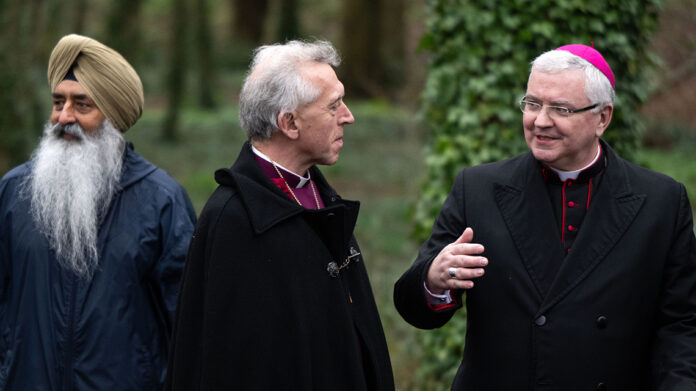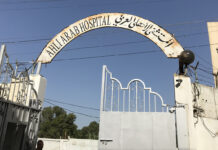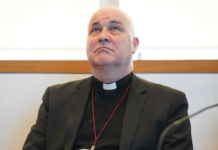Faith leaders across Wales have issued a joint statement strongly opposing the proposed Assisted Dying Bill, which seeks to legalise physician-assisted suicide for those with incurable illnesses.
Two Catholic bishops signed the statement, Archbishop Mark O’Toole of Cardiff-Menevia, and Bishop Peter Brignall of Wrexham.
“As people of faith, we share a common heritage of caring for the vulnerable, the sick, and the dying,” they write, emphasising that “compassion is at the heart of all the great world religions, and life is sacred.”
The leaders warn of the dangers such legislation poses, particularly to society’s most vulnerable. “The most vulnerable can no longer presume on the balance of healthcare being in their favour,” they caution, drawing attention to evidence from countries where similar laws have widened eligibility criteria over time.
Highlighting the importance of protecting human dignity, they call on everyone to “treasure and value these individuals among us” and urge the public to write to their MPs to express opposition to the bill.
Joint statement
A bill has been introduced to Parliament which allows doctors to supply lethal drugs to people with an incurable illness, in effect physician-assisted suicide.
As People of Faith, we share a common heritage of caring for the vulnerable, the sick and dying. This is why we feel we must speak together against the proposed legislation. Compassion is at the heart of all the Great World Religions. Life is sacred.
We address our message more widely, to all people of goodwill, because the proposals for physician-assisted suicide are not just contrary to the dignity and sanctity of life, they pose grave dangers to vulnerable people.
Cherishing life means building a society where every person is included and the diversity of individuals is not seen as a burden. If the bill becomes law, the experience of countries such as Canada, Belgium and the Netherlands shows that the most vulnerable can no-longer presume on the balance of healthcare being in their favour. The criteria for assisted suicide become widened to include groups of people who need society’s help rather than assistance in ending their lives.
We raise our voices to remind legislators of the inherent dignity of every person, especially in relation to those who are disabled, elderly or vulnerable. If this bill were to be passed many would feel insecure about the future and conclude that they are a burden on loved ones and the health service. We must treasure and value these individuals among us.
The new bill marks a very serious moment for our country. It raises serious questions about what sort of society we want to be. Especially of concern is whether we will continue to promote a proper care of the dying, and of those who are vulnerable through disability or age. It is good to see that those opposed to a change in the law includes a diverse group of medical professionals (especially but not only from the field of palliative care), disability rights organisations, researchers, carers and a range of other concerned institutions.
We urge you write to, or email your local MP, to express your concerns about the proposed bill.
Signatories
Archbishop Mark O’Toole
Archbishop of Cardiff-Menevia
Catholic Church
Bishop Peter Brignall
Bishop of Wrexham
Catholic Church
Archbishop Andrew John
The Archbishop of Wales
Church in Wales
Bishop Gregory Cameron
Bishop of St Asaph
Church in Wales
Bishop Cherry Vann
Bishop of Monmouth
Church in Wales
Bishop John Lomas
Bishop of Swansea and Brecon
Church in Wales
Bishop Mary Stallard
Bishop of Llandaff
Church in Wales
Bishop Dorrien Davies
Bishop of St Davids
Church in Wales
Bishop David Morris
Bishop of Bardsey
Church in Wales
Tim Rowlands
Evangelical Alliance in Wales
Rabbi Michoel Rose
Cardiff United Synagogue
Laurence Kahn
South Wales Jewish Representative Council
Dr Abdul-Azim Ahmed
Muslim Council of Wales
Imam Usman Manan
Ahmadiyya Muslim Community in Wales
Gurmit Singh Randhawa MBE
Sikh Council of Wales
Dr Sakti Guha Niyogi
Hindu Council of Wales



